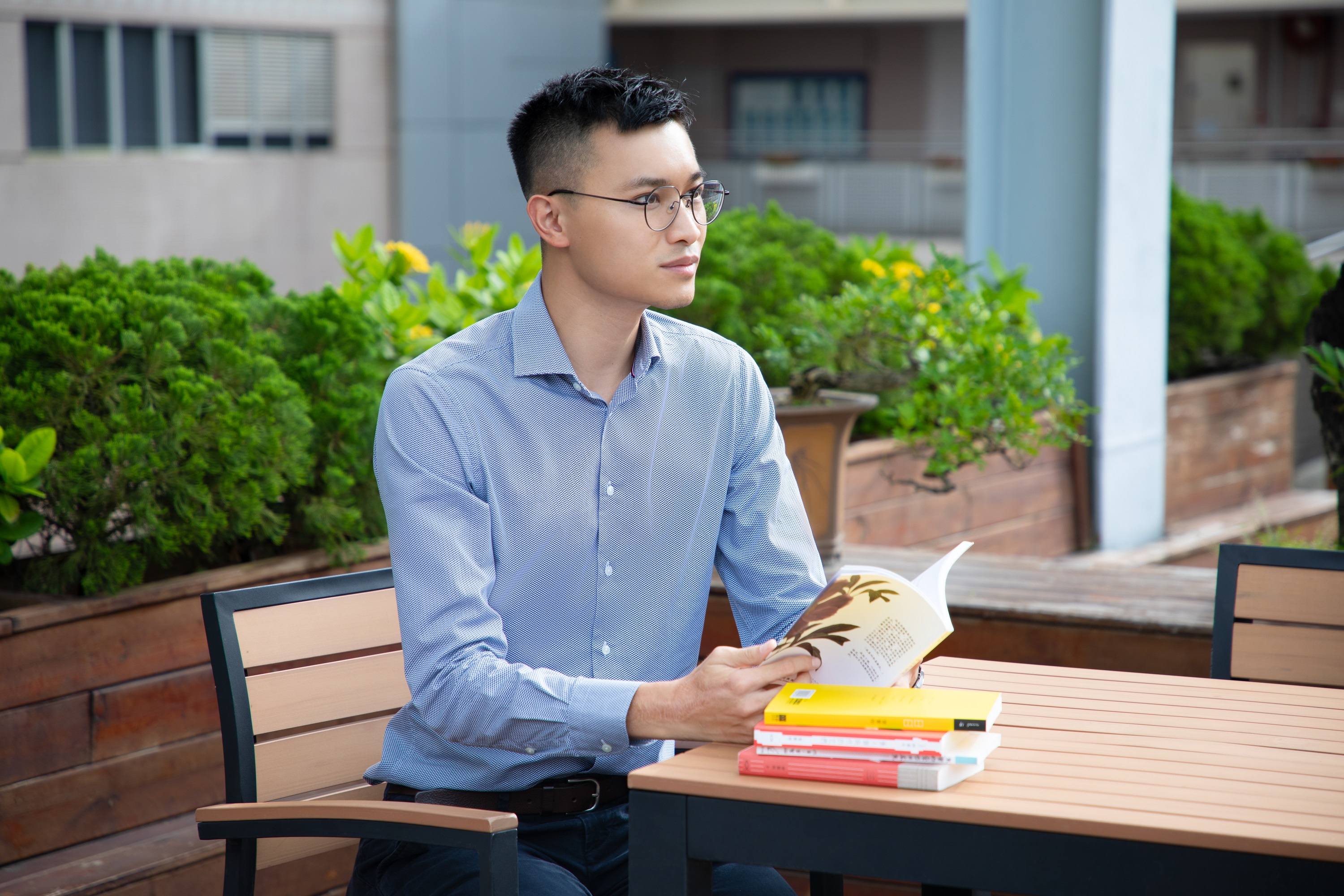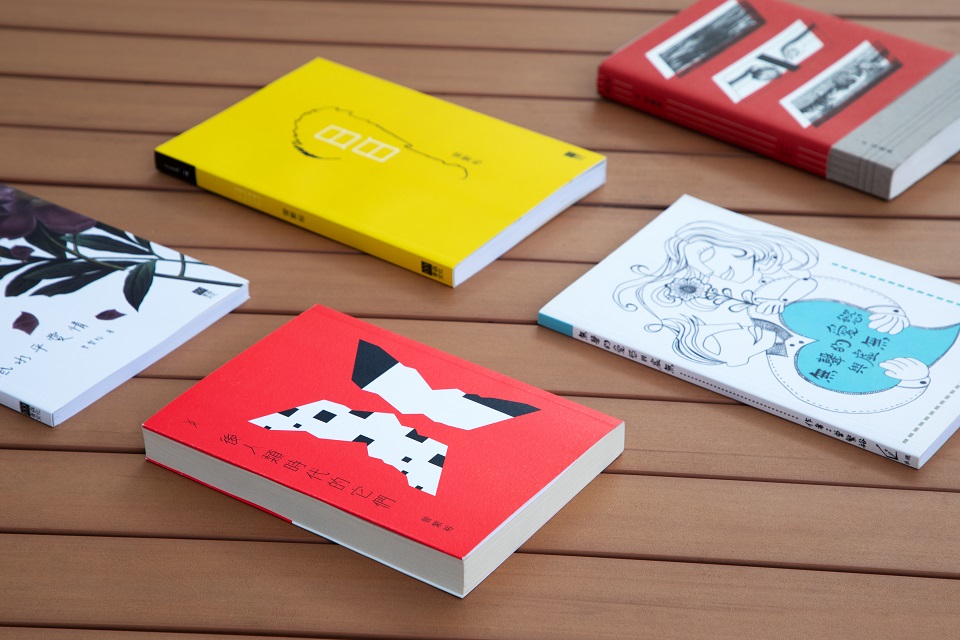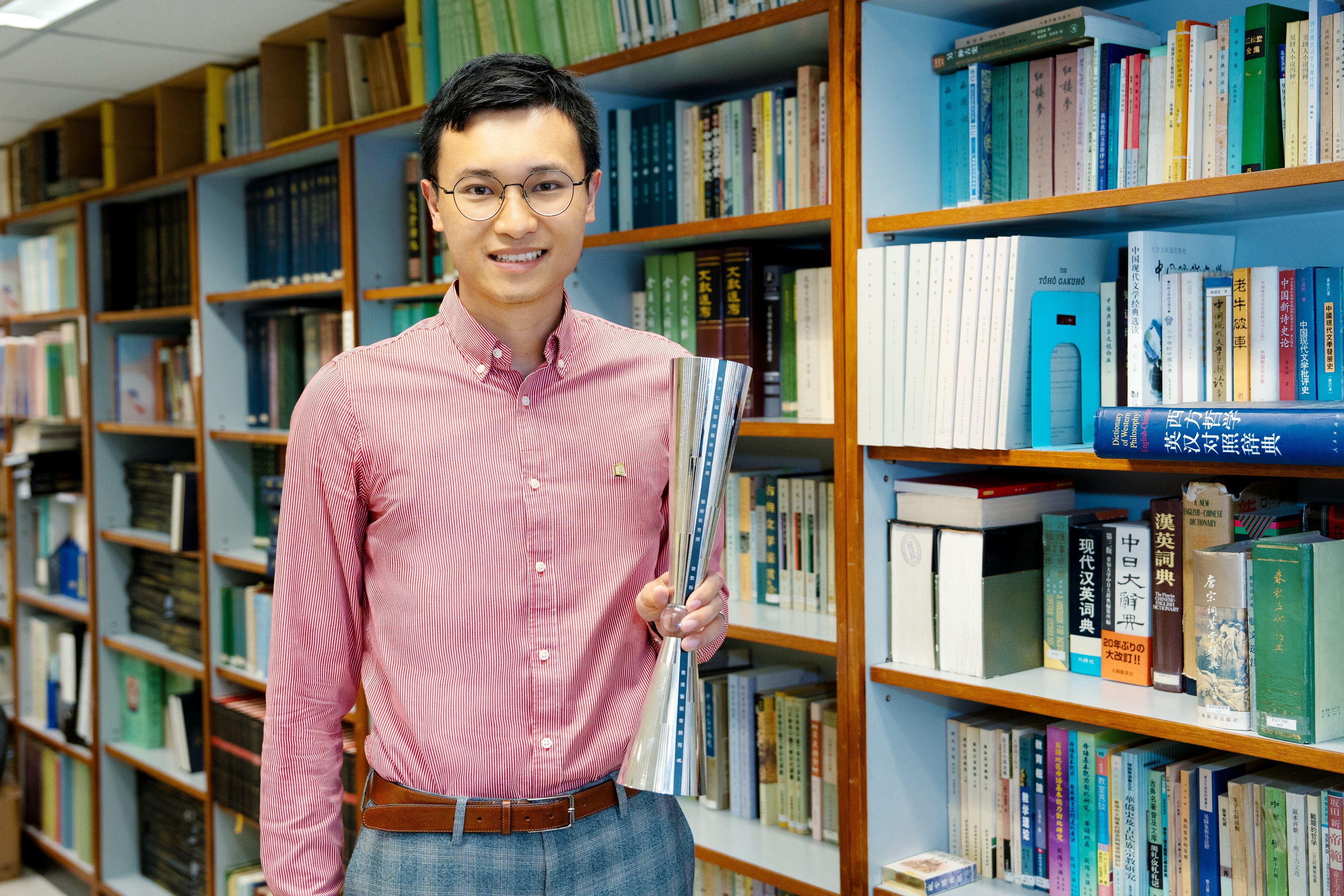Discover HKBU
Writing at the intersection of experience and imagination
28 Aug 2023


From dealing with unrequited love, to contemplating the impact of technology on human civilisation and exploring the issues in day-to-day life, Dr Gabriel Tsang, Assistant Professor of Department of Chinese Language and Literature, expresses his feelings and thoughts through literary works. By depicting the realities of the world we live in, his works capture his acute observations of modern life and encourage readers’ introspection.
Reality as the source of inspiration
“Writing, for me, is like a summary of my different stages in life.” When he was in secondary school, Dr Tsang started writing modern poems and keeping a diary to jot down the details of everyday happenings because of a crush on a girl in the classroom next door. This habit led him to venture into different genres of writing, and he developed an interest in literary writing after winning recognition such as the Youth Literary Award and the championship in essay writing competition.
Dr Tsang’s contemporary and Hong Kong-inspired works are weaved with the artistry of language and immense creativity, leaving readers with a lasting impression. When he was a third-year student at university, he published his first novel, Stand, which delves into the kind of romance fantasised by teenagers. He later wrote Low-Level Love and Silent Desire and Nothingness based on his observations on and off campus as a secondary school teacher. “When I first started writing novels, I drew on my personal experience and imagined the possible scenarios in different situations to create fictional characters, who journey through the things I observed in real life,” he says.
He further says that authors can find moments in everyday life that could become stories, and they also can broaden their horizons by developing different perspectives, reading world literature extensively and learning from other disciplines. This in turn helps the authors become immersed in the world of their characters. When he was studying for a doctoral degree in Comparative Literature in the UK, he was shocked by the news of the artificial intelligence programme AlphaGo defeating the world’s leading Go players. This prompted him to write Love in the Era of Post-human, a science fiction that shines a light on the relationship between modern human civilisation and technological advancement. His latest work, Three, is a collection of 25 short stories and essays written over the past decade.
Expressing oneself through literature
Dr Tsang has recently won the Award for Young Artist (Literary Arts) in the 17th Hong Kong Arts Development Awards presented by the Hong Kong Arts Development Council, in recognition of his achievements in the literary arts and his contribution to the promotion of literary development in Hong Kong. Apart from fiction, his writing takes various forms, including modern poems, essays and criticism.
Dr Tsang has written a number of film reviews, and he draws a comparison between film genres and literary forms, likening novels to drama, and essays being akin to documentaries. To create a novel or drama film that resonates with people, he believes that the key lies in the ability of the author or director to use their imagination to portray the observed reality in a fictional world. Essays, on the other hand, are a record of life experiences. He says: “Writing essays is about documenting reality, therefore I always pay attention to the details in the world around me in order to deliver a rich and varied text. This thought-provoking process in turn helps me create multi-layered characters and realistic plots in novel writing.”
Dr Tsang joined HKBU in 2021, and his roles as an author, scholar, teacher and editor of a literary magazine have complemented each other. He says that academic research demands an appreciation of literature, while literary editing emphasises the ability to carefully evaluate manuscript quality. Both roles cultivate critical thinking skills, which are highly beneficial for literary education and promotion efforts.
At a time when artificial intelligence can be used to produce articles, Dr Tsang admits that it is a challenge to promote Hong Kong literature. While he is concerned with how the rapid development of technology will impact the way people view literature and text, he believes that the creation of literature by humans has an irreplaceable value. “Even though artificial intelligence may be capable of generating articles that utilise certain literary techniques, humans will always crave authenticity and humanity in the works they engage with. Creativity and life are closely intertwined. Writing remains a vital medium for people to self-actualise through expressing themselves and seeking personal growth,” he says.

